J-PAL South Asia @ 10
A decade of research to guide policy action
Milestones from J-PAL South Asia’s first decade in reducing poverty by ensuring that policy is based on scientific evidence.
Timeline | Testimonials | Communications
Today:
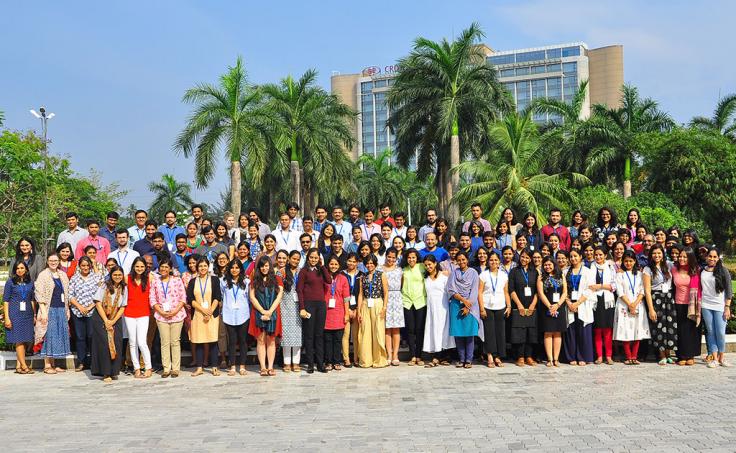
- 165 payroll staff, 1000 field staff, 72 projects, 9 offices in India with training partnerships in Nepal, Bhutan, Bangladesh and Pakistan.
- Institutional partnership signed with the state Government of Punjab: to support the government in taking an evidence-informed approach to its poverty alleviation efforts.
- New areas: early childhood education, skilling, non-communicable diseases, direct benefit transfers, data analytics using administrative data, gender, crime.
- We are creating impact through research: ‘Targeting the Ultra-Poor’ evaluation; ‘Teaching at the Right Level’ evaluations, Gujarat pollution project now a statewide reform in Gujarat; MGNREGA funds flow research in Bihar with cabinet approval for nationwide roll-out; ‘Training Informal Healthcare Providers’ in West Bengal; and several other projects that have influenced policy decisions.
2016
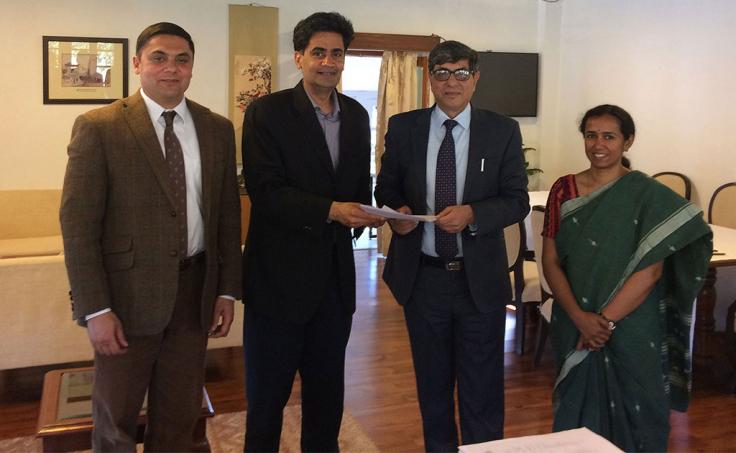
- Memorandum of Understanding with National Civil Service Academy to strengthen senior civil servants’ understanding of evaluation methodology, existing evidence of what works, and how impact evaluations can be used to make better policy decisions.
- State Government-funded TUP scale-up initiated in Jharkhand and Rajasthan.
- Union Cabinet approves nation-wide fund-flow reforms for MGNREGA, influenced by results from an evaluation in Bihar.
- Cash Transfers for Child Health Initiative (CaTCH) launched with the aim of generating rigorous policy-relevant evidence on the design and delivery of cash transfer programmes in India.
2015
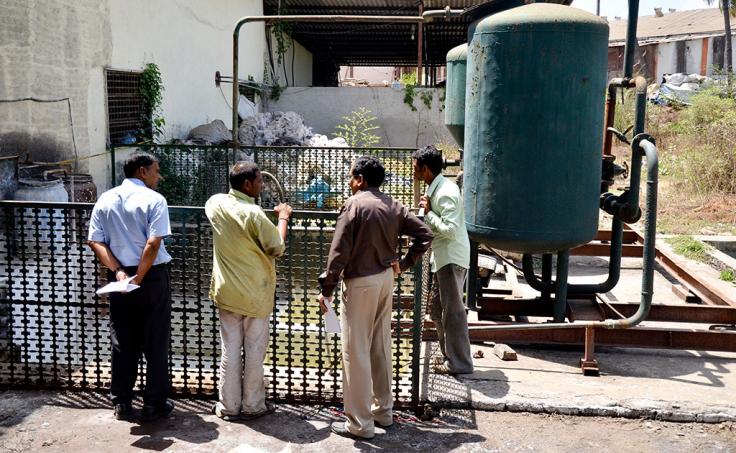
- Scale-ups: Reform by Gujarat Pollution Control Board (GPCB) of its environmental auditing system based on J-PAL evaluation; Targeting the Ultra-Poor (TUP) programme to help poor women graduate from extreme poverty: scale-up pilots in Bihar and Odisha.
- New course on Measurement and Survey Design to equip M&E and research professionals with good data collection and survey design skills.
- J-PAL South Asia Twitter handle launched: @J-PAL_SA.
- J-PAL South Asia hosts suite of research projects under the Payments and Governance Research Programme to study direct benefit transfers, in collaboration with NITI Aayog and Gates Foundation.
2014
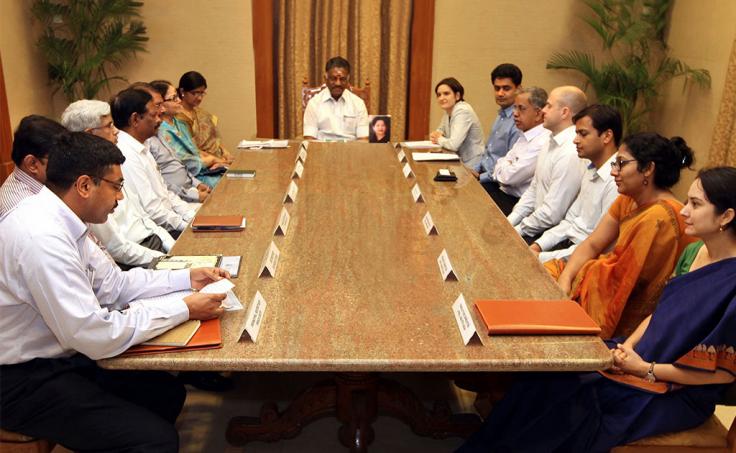
- Institutional partnership signed with Government of Tamil Nadu to institutionalise the use of evidence in policymaking by evaluating innovative programmes, strengthening monitoring systems, and enhancing the officials’ capacity to produce and use scientific evidence.
- First field staff training held for field staff of J-PAL South Asia projects.
2013

- First training for probationer-level officers of the Indian Economic Service (IES) on Monitoring and Evaluation. The training focused on the use of impact evaluation to inform policymaking and programme design.
- Collaboration with Government of West Bengal to test the impact of training informal healthcare providers in India.
2012
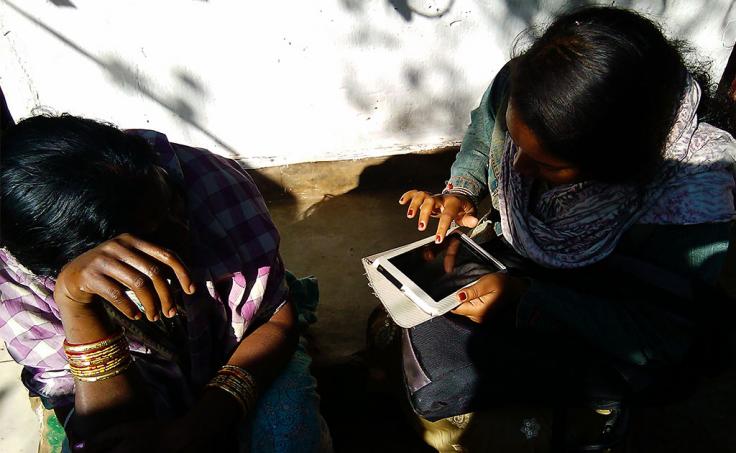
- 57 payroll staff, 19 projects, 4 offices in India with training partnerships in Sri Lanka, Bangladesh and Pakistan.
- Workshop on ‘Early Grade Reading’ in partnership with USAID India exploring global evidence produced by randomised evaluations, to design more effective programmes in India.
- Teaching at the Right-Level: Teacher-led model evaluated in Haryana government schools.
- Started Digital Data Collection through mobile phones and tablets.
2011
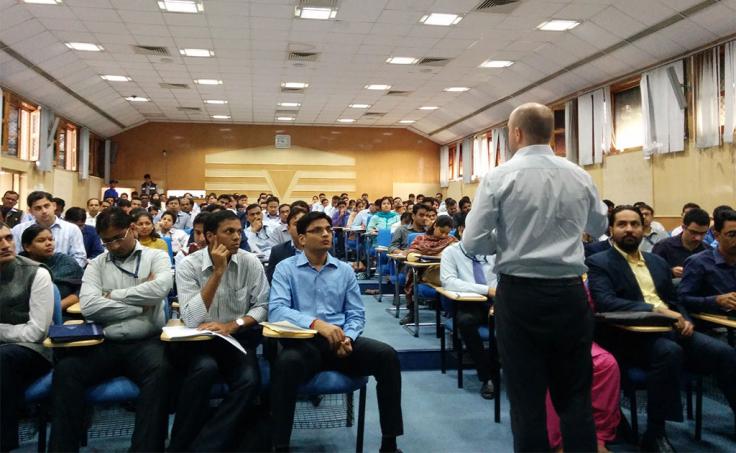
- First Scale-up: School-based Deworming through partner Evidence Action through Deworm the World initiative in Bihar.
- A dedicated Policy and Training team to create new content, disseminate knowledge about “what works” in poverty alleviation and partner with policymakers to scale up effective programmes.
- Selected to host the South Asia Center for CLEAR (Regional Centers for Learning on Evaluation and Results), a World Bank-led initiative, to help build monitoring and evaluation capacity in the region. through training courses and advisory services.
- Begins long-term partnership with India’s National Academy of Administration (LBSNAA) to conduct evidence workshops and trainings on impact evaluations for senior civil servants of the Indian Administrative Service (IAS).
- First set of external engagements begin in Sri Lanka and Bangladesh via training workshops.
2010
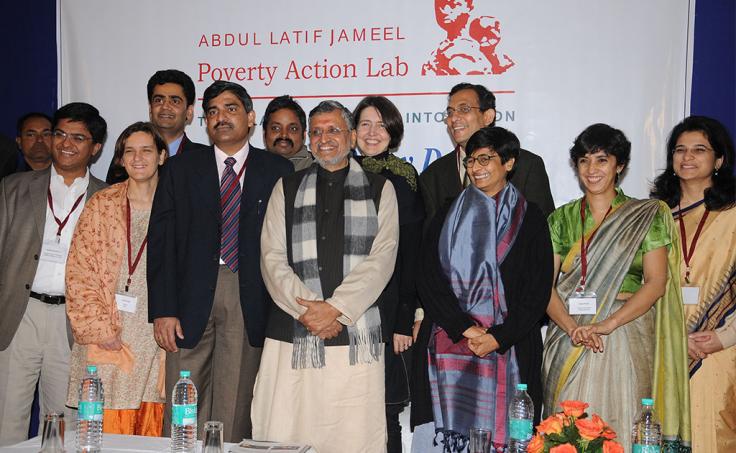
- Bihar Policy Conference: partnered with the Government of Bihar for a conference with 100 top policymakers of the state. As a direct result of the conference, the Government of Bihar decided to implement universal school-based deworming to improve health and school attendance.
- Replications: Evaluating the impact on anaemia of making double-fortified salt available in Bihar; and evaluating the impact of a biometric attendance tracking system on staff attendance and patient health in primary health centers, with the Government of Karnataka.
- An in-house Survey and Data Operations team set up to collect primary data for evaluations.
2009
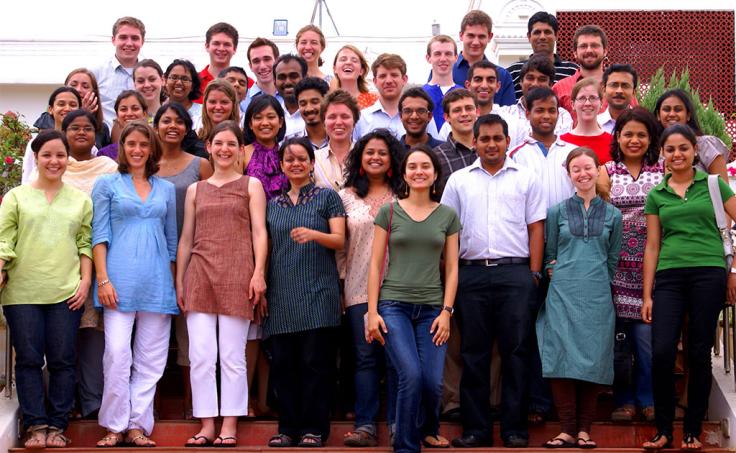
- Rajasthan Police Project policy conference hosted in Udaipur to distil the findings from the police skills training evaluation conducted in collaboration with Rajasthan police.
- First staff training hosted by J-PAL South Asia for new J-PAL and IPA employees.
- Evaluation with Government of Gujarat on Improving Third-Party Audits and Regulatory Compliance in India
2008
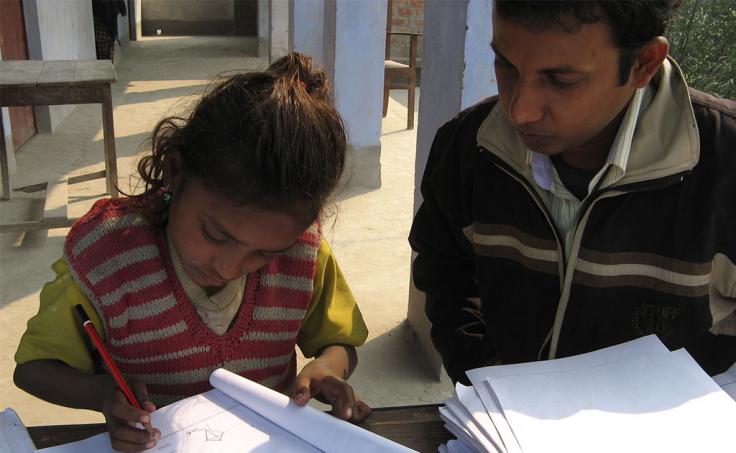
- First project with state governments (Uttarakhand and Bihar) after J-PAL SA was formally set up, to evaluate Pratham’s ‘Read India’ programme.
- Research Manager (Team Leader) position created in South Asia to manage multiple projects.
- Delhi Voters’ Project initiated to understand whether voters make informed choices when presented with performance evidence of incumbents.
2007

- Established at the Institute for Financial Management and Research in Chennai, India, with support of the Mulago Foundation
- First NGO partners in India – Pratham and Seva Mandir with evaluations on:
- Improving immunisation rates through regular camps and incentives in India.
- The impact of a remedial tutoring education intervention, the Balsakhi Programme, implemented in schools in Vadodara and Mumbai, on student learning.